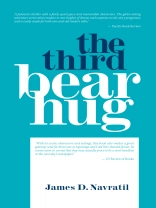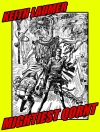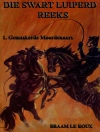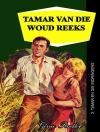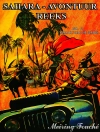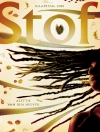The Third Bear Hug is a continuation of the stories in The Bear Hug and The Final Bear Hug.
The Final Bear Hug concludes during an expedition in Antarctica that Tim supports to see if one of the Russian crew members is passing nuclear weapon’s information to a group of Argentinian scientists.
On the expedition, James and Ying are married by the captain, and Alex tries to kill James but later finds out that James did not kill his father. On the last night of the voyage, during a violent rainstorm, Alex meets James at the stern of the ship and makes amends to him, which ends by Alex giving James a big bear hug that causes both of them to accidentally fall into the rough and freezing ocean.
The story in The Third Bear Hug begins on the morning following the violent storm. A man and two ladies discover James washed up on the shore of Cape Horn.
Author’s note: You may find out if Alexei is successful in killing Prof. John James Czermak when you read this book. Globe-trotters will especially enjoy reading about some of the author’s travels.
Sobre el autor
Dr. James D. Navratil was educated as an analytical chemist at the University of Colorado and is now professor emeritus of environmental engineering and earth sciences at Clemson University in South Carolina. His other teaching experiences include serving as a chemical training officer in the U.S. Army Reserve, teaching general chemistry at the University of Colorado, and teaching chemical engineering and extractive metallurgy subjects at the University of New South Wales, Australia, where he also served as head of the Department of Mineral Processing and Extractive Metallurgy. In addition, he was an affiliate professor at the Colorado School of Mines, University of Idaho, and Clemson University as well as a visiting professor at the Technical University in Prague.
Dr. Navratil’s industrial experience was acquired primarily at the U.S. Department of Energy (DOE), Rocky Flats Plant (RFP), and through his assignments with the International Atomic Energy Agency (IAEA), Chemical Waste Management, DOE’s Energy Technology Engineering Center, Idaho National Engineering and Environmental Laboratory, Rust Federal Services, and Hazen Research, Inc.
Dr. Navratil earned numerous honors, including a Dow Chemical Scholarship, the annual award of the Colorado Section of the American Chemical Society (ACS), Rockwell International Engineer of the Year, two IR-100 awards, and three society fellowships. He was a member of the IAEA team awarded the 2005 Nobel Peace Prize and, in 2006, received the Lifetime Achievement Award for Commitment to the Waste-Management, Education and Research Consortium (WERC) and to WERC’s International Environmental Design Contests.
Dr. Navratil has four patents to his credit and has given more than 450 presentations, including lectures in more than one hundred countries. He has coedited or coauthored 19 books (most recently with Fedor Macasek, Separations Chemistry, and with Jiri Hala, Radioactivity, Ionizing Radiation, and Nuclear Energy), published more than 250 scientific publications, and served on the editorial boards of over a dozen journals. He was instrumental in the founding of the journals Solvent Extraction and Ion Exchange (serving as coeditor for many years) and Preparative Chromatography (serving as editor) as well as the ACS’s Subdivision of Separation Science and Technology (SST) and its award in SST and DOE’s Actinide Separation Conferences and its Glenn Seaborg Award in Actinide Separations. Dr. Navratil has also organized or co-organized many conferences, symposiums, and meetings for the ACS, DOE, and IAEA.
He is a diamond member of the Traveler’s Century Club (www.travelerscenturyclub.org) having visited 307 countries and territories on the club list of 327. Some of these travels are described herein.
